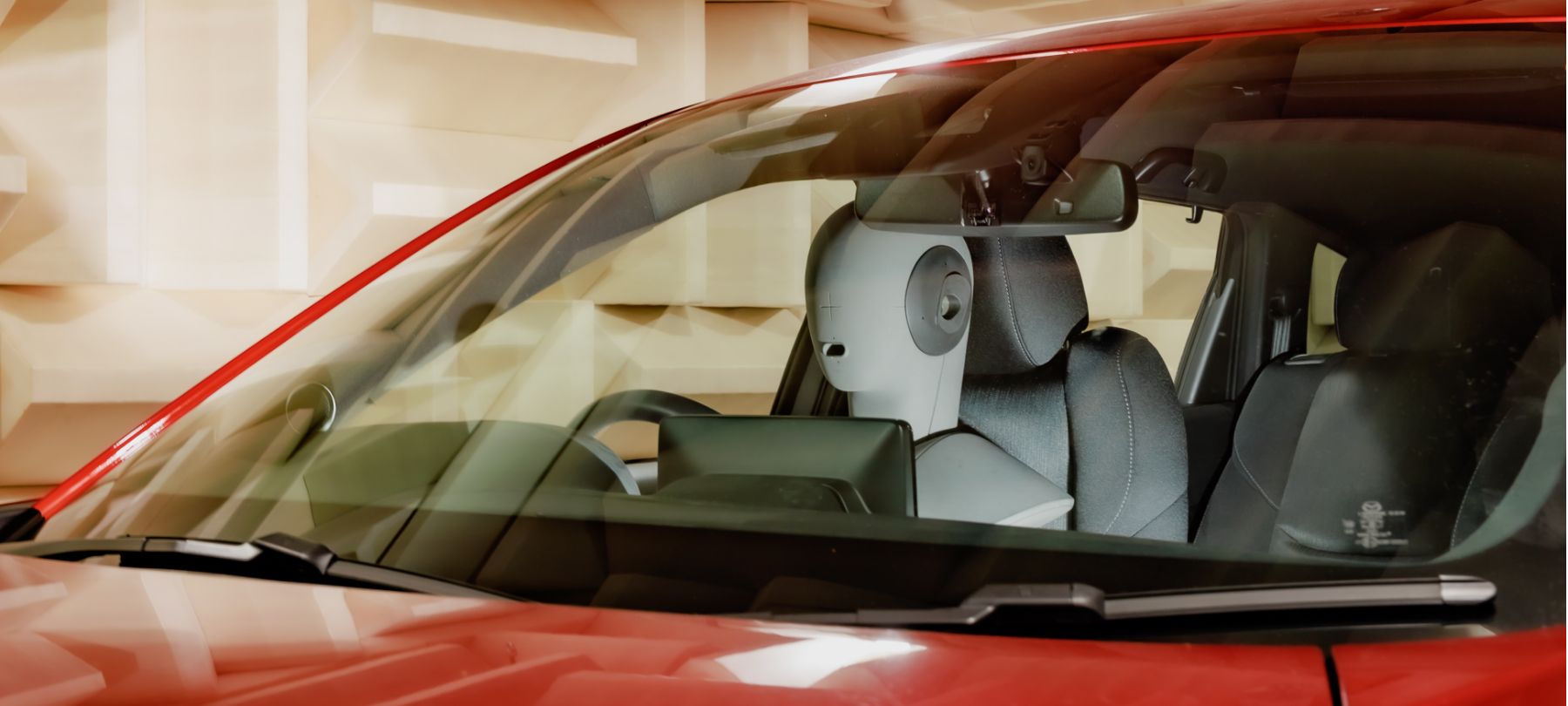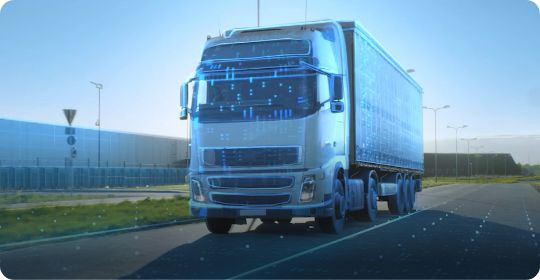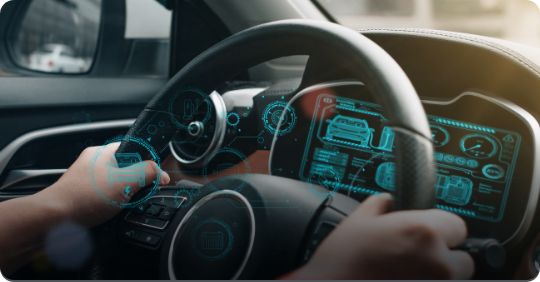Transtron Technology
technology

With advanced technology, we realize vehicle safety,
comfort, and reduced environmental impact.
Transtron leverages its long-established advanced control and communication technologies to develop electronic control unit that control a vehicle's "driving," "steering," and "braking," as well as connected in-vehicle information systems that collect various vehicle information and perform real-time processing.
Additionally, the company leverages its proprietary advanced audio signal processing technology to develop array microphones and modules with high directionality and noise suppression, as well as simulateors to achieve higher product quality, demonstrating its expertise across a wide range of technological fields.
Research and Development
Development of High-Performance, High-Function ECUs
- We develop ECUs that support various vehicle control functions, such as transmission control, brake control, and engine control.
- Through circuit optimization, such as ASIC integration, we enable the implementation of high-density circuits, achieving compact and low-cost ECUs.
- We achieve heat resistance and vibration resistance suitable for various operating environments, and have realized a fully waterproof structure for ECUs mounted on truck chassis.
- We perform optimal design to maximize the performance of CPUs and SOCs.
- Diesel engine ECUs are equipped with 32-bit RISC chips, enabling high-speed and high-precision control required for common rail systems.
- Firmware development employs an optimal modular structure and model-based development.
Further Evolution of In-Vehicle Information Systems
- In-vehicle information systems, through the introduction of cloud and SaaS technologies, enable real-time operation management and dynamic management, contributing to the optimization of operation management and business efficiency through real-time data collection and analysis.
- Through big data analysis and processing technologies, as well as integration with external devices such as ETC and mobile alcohol detectors, these systems support safe and fuel-efficient driving.
- Drive recorders provide safe driving support functions using image recognition technology and detect dangerous driving behaviors.
- GPS trackers that are inexpensive, do not require power, and enable location management contribute to solving various challenges in the transportation industry.
Audio Signal Processing
- Various signal processing technologies, such as noise cancellation and echo cancellation, contribute to improving the quality of hands-free calling and emergency notification services in automotive environments.

High Reliability
Commitment to High Reliability
- Our product development is based on the international standards ISO 9001 and IATF 16949, enabling us to meet our customers' diverse needs with high reliability and quality.
- Hardware development involves environmental performance evaluations using dedicated evaluation equipment to ensure high reliability.
- Firmware development automates and enhances evaluations at the source and module levels to prevent defects during the design phase.
- Additionally, we have introduced simulators equivalent to actual vehicles to strengthen evaluations before vehicle installation, thereby preventing defects from reaching the production stage.
- We store our customers' operational data in a data center with high security and robustness.
Environment
Environmental Conservation Initiatives
- We are committed to leaving a clean planet for future generations. Based on ISO 14001 Environmental Management System, SDGs, and ESG, we are engaged in product development and design aimed at reducing environmental impact and contributing to the environment.
- Engine ECUs contribute to the cleanliness of diesel engines through high-precision control.
- Optimal control of transmission ECUs contributes to improved fuel efficiency of vehicles.
- All ECUs prioritize environmental conservation and comply with various environmental regulations (RoHS, ELV, REACH, etc.).
- In-vehicle information systems enhance safety and economy through eco-driving support, and significantly contribute to mitigating global warming (CO2 reduction).
- Vehicle electrification technology promotes the electrification of commercial vehicles, contributing to the realization of superior environmental performance and fuel efficiency.











